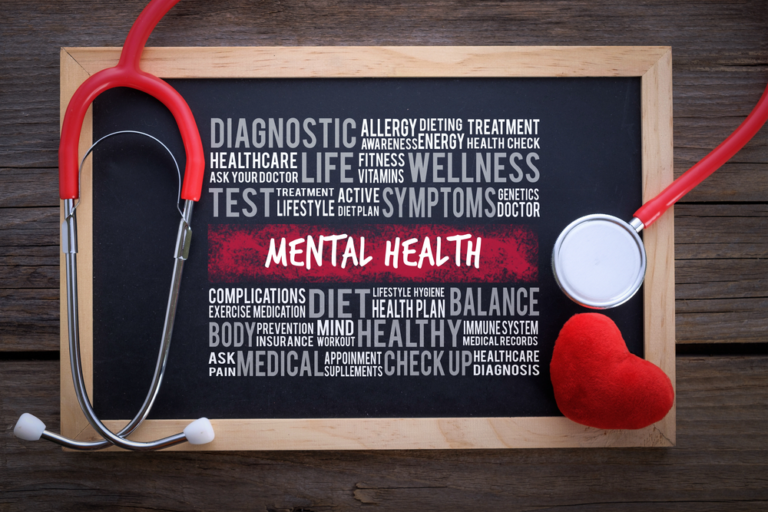Trying Out The Egg Diet
Trying Out The Egg Diet?
With an egg diet it is possible to grow thin for 6-10 kilograms. In the period of a diet it is possible to drink water in any quantities.
It is impossible to exclude from the egg menu. It is obligatory to observe a diet mode to achieve good result.
First week.
Monday: Breakfast: 1 orange and 1 egg.
Dinner: To steam fowl, vegetable salad.
Second dinner: 1 orange, 2 eggs, vegetable salad.
Tuesday Breakfast: 1 orange, 1 egg. Dinner: To steam fowl, vegetable salad.
Second dinner: 2 eggs, 1 orange.
Wednesday.
Breakfast: 1 egg and 1 orange.
Dinner: To steam fowl and salad from cucumbers.
Second dinner: 2 eggs, 1 orange.
Thursday. Breakfast: 1 egg and 1 orange.
Dinner: To steam vegetables, 2 eggs, it is possible to eat low-fat cheese.
Second dinner: 2 eggs and 1 orange.
Friday. Breakfast: 1 egg and 1 orange.
Dinner: To steam fish.
Second dinner: 1 egg.
Saturday.
Breakfast: 1 egg and 1 orange.
Dinner: To steam fowl, salad from tomatoes, 1 orange.
Second dinner: To make fruit salad of any fruit.
Sunday. Breakfast: 1 egg and 1 orange.
Dinner: To steam fowl, salad from tomatoes, 1 orange.
Second dinner: To steam vegetables, 1 egg.
Second week. Within the second week of a dish to prepare for all day, to divide into equal small portions and is during the whole day!
Monday.
1 . To steam 150 grams of chicken fillet;
2 . To prepare 300 grams of vegetable salad;
3 . To cook 3 eggs;
4 . 1 orange.
Tuesday.
1 . To steam 150 grams of fowl;
2 . 3 tomatoes;
3 . 1 orange.
Wednesday.
1 . To steam 200 grams of vegetables;
2 . 50 grams of cottage cheese;
3 . 1 orange.
Thursday.
1 . To steam 150 grams of vegetables;
2 . To prepare 100 grams of salad from cucumbers with olive oil;
3 . 3 eggs;
4 . 1 orange.
Friday.
1 . 3 eggs;
2 . 150 grams of vegetable salad;
3 . 1 orange.
Saturday.
1 . To steam 150 grams of chicken fillet;
2 . To prepare 150 grams of salad from tomatoes;
3 . 300 grams of low-fat cottage cheese;
4 . 1 orange.
Sunday.
1 . 50 grams of low-fat cottage cheese;
2 . 100 grams of vegetable salad;
3 . 2 eggs; 4 . 1 orange.
The pursuit of a healthy and balanced diet has been a timeless endeavor for many individuals, with various methods and fads constantly emerging in the realm of nutrition.
Among these trends is the recently popularized “Egg Diet,” which has gained attention for its purported weight loss benefits.
This diet involves primarily consuming eggs as the main source of protein, alongside a few complementary foods.
With its growing popularity, it is important to take a closer look at the Egg Diet and explore its potential benefits and drawbacks.
In this article, we will delve into the details of the Egg Diet, its origins, and the science behind its supposed benefits.
We will also examine whether this diet is sustainable in the long term and if it can truly aid in weight loss.
Before embarking on any new diet, it is crucial to have an understanding of its principles and implications, and this article aims to provide a comprehensive overview of the Egg Diet for those who are considering giving it a try.
Table of Contents Trying Out The Egg Diet
Benefits of incorporating eggs daily
Incorporating eggs into your daily diet can bring a multitude of benefits to your overall health and well-being.
With their high protein content, eggs provide essential amino acids that aid in building and repairing tissues, making them an excellent option for those looking to support muscle growth or recovery after exercise.
Additionally, eggs are rich in vitamins such as B12, which plays a crucial role in brain function and the production of red blood cells.
They also contain nutrients like choline, which supports brain health and helps regulate metabolism.
Furthermore, eggs are a great source of antioxidants such as lutein and zeaxanthin, which contribute to eye health and can reduce the risk of age-related macular degeneration.
Incorporating eggs into your daily meals can thus provide numerous health benefits, making them a nutritious and versatile addition to any diet.
Research on egg diet effectiveness
Numerous studies have been conducted to evaluate the effectiveness of incorporating eggs into a diet for weight loss and overall health improvement.
One study published in the International Journal of Obesity found that individuals who consumed eggs for breakfast experienced greater weight loss and reduced waist circumference compared to those who consumed a bagel-based breakfast with the same amount of calories.
Another study published in the American Journal of Clinical Nutrition concluded that a higher protein diet, including eggs, can lead to increased feelings of fullness and satiety, resulting in reduced calorie intake throughout the day.
Additionally, research has shown that the inclusion of eggs in a balanced diet can lead to improved blood lipid profiles, including increased levels of HDL (good) cholesterol and decreased levels of LDL (bad) cholesterol, which are associated with a reduced risk of heart disease.
These findings indicate that incorporating eggs into a well-rounded and balanced diet may be an effective strategy for weight management and promoting overall health.
Incorporating variety to avoid boredom
To maximize the effectiveness of any diet, including the Egg Diet, it is important to incorporate variety into your meal plan.
Eating the same foods day after day can quickly lead to boredom and make it difficult to stick to a diet long-term.
By introducing different ingredients and flavors into your meals, you can not only prevent monotony but also ensure that you are getting a wide range of nutrients.
Consider incorporating a variety of vegetables, lean proteins, whole grains, and healthy fats into your meals to create a well-rounded and satisfying diet.
Experiment with different cooking methods, spices, and seasonings to add flavor and excitement to your dishes.
Additionally, trying out new recipes and exploring different cuisines can help to keep you motivated and engaged on your weight loss journey.
Remember, a diverse and enjoyable diet is key to sustainable and successful weight loss.
Maintaining balanced nutrition is crucial
Maintaining balanced nutrition is crucial for overall health and wellbeing, regardless of the specific diet you are following.
It provides your body with the essential nutrients it needs to function optimally and support various bodily processes.
A balanced diet should include a variety of food groups, such as fruits, vegetables, whole grains, lean proteins, and healthy fats.
These foods provide a wide range of vitamins, minerals, fiber, and antioxidants, which are vital for maintaining a strong immune system, promoting healthy digestion, and reducing the risk of chronic diseases.
It is important to prioritize nutrient-dense foods and avoid excessive consumption of processed and sugary products.
By focusing on balanced nutrition, you can ensure that your body is receiving the necessary fuel to thrive and sustain your weight loss efforts in a healthy and sustainable manner.
Consult with a healthcare professional
To maximize the effectiveness and safety of any dietary regimen, it is strongly recommended to consult with a healthcare professional before embarking on a new eating plan, such as the Egg Diet.
A healthcare professional, such as a registered dietitian or a doctor specializing in nutrition, can provide valuable guidance and personalized recommendations based on your individual needs and health goals.
They can assess your current health status, take into account any underlying medical conditions or medication interactions, and offer tailored advice to ensure that the chosen diet aligns with your specific requirements.
Moreover, they can help monitor your progress and make any necessary adjustments along the way, ensuring that you are achieving your weight loss goals while maintaining optimal health.
Consulting with a healthcare professional is a proactive step towards making informed decisions about your dietary choices and ultimately supporting your overall well-being.
After weeks of following the restrictive egg diet, it’s safe to say that while I did experience some weight loss, the physical and mental toll was not worth it.
Not only did the diet leave me feeling deprived and unsatisfied, but it also lacked important nutrients and variety.
While eggs can certainly be a healthy part of a balanced diet, relying solely on them for weight loss is not sustainable or healthy in the long run.
As with any diet, it’s important to consult with a healthcare professional before trying it out and to make sure it aligns with your individual health and wellness goals.
In the end, it’s best to focus on making sustainable and healthy lifestyle changes rather than quick fixes or fad diets.
FAQ
What are the potential health benefits and risks of following the egg diet?
The egg diet may lead to short-term weight loss due to its high-protein, low-carb nature.
Eggs are rich in nutrients like protein and vitamins, promoting muscle growth and overall health.
However, long-term adherence to this diet can result in nutrient deficiencies and potential risks like increased cholesterol levels.
It is recommended to consult a healthcare professional before starting any restrictive diet to ensure it meets your nutritional needs and doesn’t pose health risks.
How does the egg diet compare to other popular weight loss diets in terms of effectiveness?
The egg diet can be effective for short-term weight loss due to its low-calorie nature and high protein content, but it may lack variety and essential nutrients in the long run.
Other popular diets, such as the Mediterranean diet or the DASH diet, focus on overall health and sustainable weight loss by promoting a balanced intake of nutrients from various food groups.
These diets have been shown to be more effective in the long term due to their emphasis on whole foods, better adherence, and overall health benefits beyond just weight loss.
Can the egg diet be sustainable in the long term, or is it meant to be a short-term solution?
The egg diet is typically viewed as a short-term solution rather than a sustainable long-term option.
While eggs are a nutritious food, relying heavily on them for an extended period may lead to nutritional deficiencies and lack of dietary variety.
It is important to incorporate a wide range of foods to ensure adequate nutrient intake and long-term health.
Consulting with a healthcare provider or nutritionist is recommended before starting any restrictive diet to ensure it aligns with individual health goals and needs.
Are there any specific guidelines or restrictions to follow when trying out the egg diet?
When trying out the egg diet, it is important to consult a healthcare professional or nutritionist to ensure it aligns with your health goals and dietary needs.
Some general guidelines to follow include incorporating a variety of vegetables, fruits, and whole grains to ensure balanced nutrition, limiting processed foods and added sugars, and staying properly hydrated.
Additionally, monitoring cholesterol levels is important as eggs are high in dietary cholesterol.
It’s essential to listen to your body, make modifications as needed, and avoid extreme or long-term restrictions for overall health and well-being.
How can one ensure they are getting enough nutrients while on the egg diet, considering eggs are the primary food source?
To ensure adequate nutrient intake on the egg diet, it’s essential to incorporate a variety of foods alongside eggs.
Include vegetables, fruits, whole grains, lean protein sources, and healthy fats to balance the diet.
Supplements may be needed to cover any deficiencies.
Additionally, drinking plenty of water and monitoring portion sizes can help maintain overall health while following the egg diet.
Consulting with a healthcare provider or nutritionist for personalized guidance is recommended.







